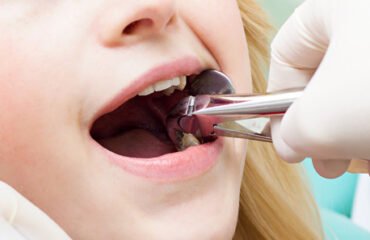 Are you curious about what challenges Sunita Williams faced with her dental health in the outer space?NASA astronauts Sunita Williams and Barry “Butch” Wilmore, along with crewmates Nick Hague and Russian cosmonaut Aleksandr Gorbunov, safely returned to Earth on March 18, 2025, after an extended nine-month mission aboard the International Space Station (ISS).recovery teams promptly retrieved the astronauts, who were then transported for medical evaluations and debriefings. They are currently undergoing rehabilitation to readjust to Earth’s gravity after their prolonged stay in microgravity.
Are you curious about what challenges Sunita Williams faced with her dental health in the outer space?NASA astronauts Sunita Williams and Barry “Butch” Wilmore, along with crewmates Nick Hague and Russian cosmonaut Aleksandr Gorbunov, safely returned to Earth on March 18, 2025, after an extended nine-month mission aboard the International Space Station (ISS).recovery teams promptly retrieved the astronauts, who were then transported for medical evaluations and debriefings. They are currently undergoing rehabilitation to readjust to Earth’s gravity after their prolonged stay in microgravity.  MICROGRAVITY, RADIATION AND BODYMicrogravity is the condition in which people or objects appear to be weightless. The effects of microgravity can be seen when astronauts and objects float in space.In space, astronauts are exposed to varied and increased levels of radiation that are different from those on Earth. Exposure to increased radiation can be associated with both short- and long-term health consequences, depending on how much total radiation astronauts experience and the time frame in which they experience that exposure.The effects of spaceflight on the human body are complex and largely harmful over both short and long term.Significant adverse effects of long-term weightlessness include muscle atrophy and deterioration of the skeleton (spaceflight osteopenia).[2] Other significant effects include a slowing of cardiovascular system functions, decreased production of red blood cells (space anemia),[3] balance disorders, eyesight disorders and changes in the immune system. Additional symptoms include fluid distribution (causing the “moon face” appearance typical in pictures of astronauts experiencing weightlessness), loss of body mass, nasal congestion, sleep disturbance, and excess flatulence.
MICROGRAVITY, RADIATION AND BODYMicrogravity is the condition in which people or objects appear to be weightless. The effects of microgravity can be seen when astronauts and objects float in space.In space, astronauts are exposed to varied and increased levels of radiation that are different from those on Earth. Exposure to increased radiation can be associated with both short- and long-term health consequences, depending on how much total radiation astronauts experience and the time frame in which they experience that exposure.The effects of spaceflight on the human body are complex and largely harmful over both short and long term.Significant adverse effects of long-term weightlessness include muscle atrophy and deterioration of the skeleton (spaceflight osteopenia).[2] Other significant effects include a slowing of cardiovascular system functions, decreased production of red blood cells (space anemia),[3] balance disorders, eyesight disorders and changes in the immune system. Additional symptoms include fluid distribution (causing the “moon face” appearance typical in pictures of astronauts experiencing weightlessness), loss of body mass, nasal congestion, sleep disturbance, and excess flatulence.  ORAL CHANGES
ORAL CHANGES- Microgravity alters the body’s fluid distribution and balance, leading to decreased salivary flow, which can cause xerostomia (dry mouth).
- This condition is exacerbated by increased bone resorption, which raises the salivary saturation of calcium salts like calcium oxalate and calcium phosphate, heightening the risk of sialolithiasis.
- Microgravity conditions influence oral bacteria dynamics significantly.
- This environment promotes biofilm formation, enhancing bacterial resistance to antimicrobial agents.
- Combined with a compromised immune system can lead to severe oral health issues such as periodontitis, delayed wound healing, and potentially cancerous lesions, a condition informally referred to as “space AIDS syndrome“
- Reduced salivation contributes to a higher incidence of periodontal diseases. Factors such as poor oral hygiene, nervousness, and fatigue exacerbate these risks among crew personnel.
- The prevalence of dental caries increases significantly.
- Effect on Facial Bones – Under microgravity conditions, osteoporosis of both the maxilla and mandible has been observed. This bone demineralization results from an imbalance between bone formation and resorption processes. Ther is increased susceptibility to fractures.
- There can be spasmatic hyperactivity in the mandibular musculature. This condition may lead to degenerative changes in the joint by exerting abnormal pressure on the fibrous tissue of the articular disc.




